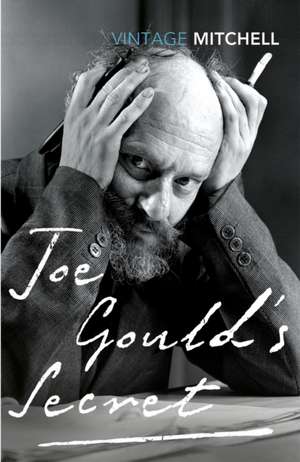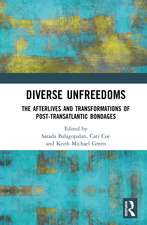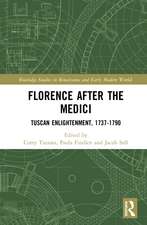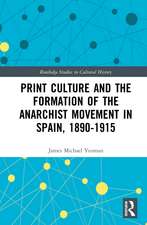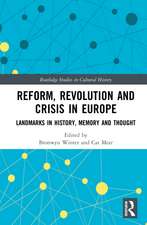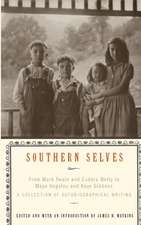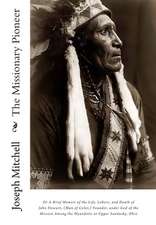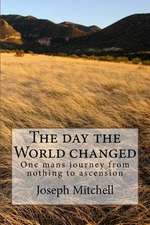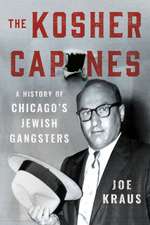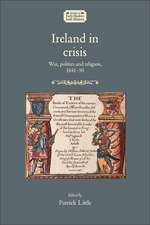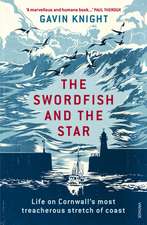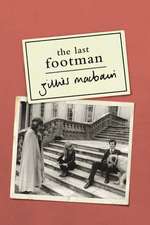Joe Gould's Secret
Autor Joseph Mitchellen Limba Engleză Paperback – 2 oct 2019
| Toate formatele și edițiile | Preț | Express |
|---|---|---|
| Paperback (2) | 80.45 lei 22-36 zile | +4.09 lei 6-12 zile |
| Vintage Publishing – 2 oct 2019 | 80.45 lei 22-36 zile | +4.09 lei 6-12 zile |
| Vintage Publishing – 30 noi 1999 | 108.50 lei 22-36 zile |
Preț: 80.45 lei
Nou
Puncte Express: 121
Preț estimativ în valută:
15.40€ • 16.73$ • 12.94£
15.40€ • 16.73$ • 12.94£
Carte disponibilă
Livrare economică 31 martie-14 aprilie
Livrare express 15-21 martie pentru 14.08 lei
Preluare comenzi: 021 569.72.76
Specificații
ISBN-13: 9781784875619
ISBN-10: 1784875619
Pagini: 112
Dimensiuni: 130 x 198 x 12 mm
Greutate: 0.1 kg
Editura: Vintage Publishing
ISBN-10: 1784875619
Pagini: 112
Dimensiuni: 130 x 198 x 12 mm
Greutate: 0.1 kg
Editura: Vintage Publishing
Notă biografică
Joseph Mitchell was born in North Carolina and moved to New York City in 1929. He died in 1996.
Extras
Joe Gould is a blithe and emaciated little man who has been a notable in the cafeterias, diners, barrooms, and dumps of Greenwich Village for a quarter of a century. He sometimes brags rather wryly that he is the last of the bohemians. "All the others fell by the wayside,- he says. "Some are in the grave, some are in the loony bin, and some are in the advertising business." Gould's life is by no means carefree; be is constantly tormented by what he calls "the three H's"-homelessness, hunger, and hangovers. He sleeps on benches in subway stations, on the floor in the studios of friends, and in quarter-a-night flophouses on the Bowery. Once in a while he trudges up to Harlem and goes to one of the establishments known as "Extension Heavens" that are operated by followers of Father Divine, the Negro evangelist, and gets a night's lodging for fifteen cents. He is five feet four and he hardly ever weighs more than a hundred pounds. Not long ago he told a friend that he hadn't eaten a square meal since June, 1936, when he bummed up to Cambridge and attended a banquet during a reunion of the Harvard class of 1911, of which he is a member. "I'm the foremost authority in the United States," he says, "on the subject of doing without." He tells people that he lives on -air, self-esteem, cigarette butts, cowboy coffee, fried-egg sandwiches, and ketchup." Cowboy coffee, he says, is strong coffee drunk black without sugar. "I've long since lost my taste for good coffee," he says. "I much prefer the kind that sooner or later, if you keep on drinking it, your hands will begin to shake and the whites of your eyes will turn yellow." While having a sandwich, Gould customarily empties a bottle or two of ketchup on his plate and eats it with a spoon. The countennen in the Jefferson Diner, on Village Square, which is one of his hangouts, gather up the ketchup bottles and hide them the moment he puts his head in the door. "I don't particularly like the confounded stuff," he says, -but I make it a practice to eat all I can get. It's the only grub I know of that's free of charge."
Gould is a Yankee. His branch of the Goulds has been in New England since 1635, and he is related to many of the other early New England families, such as the Lawrences, the Clarkes, and the Storers. "There's nothing accidental about me," he once said. -I'll tell you what it took to make me what I am today. It took old Yankee blood, an overwhelming aversion to possessions, four years of Harvard, and twenty-five years of beating the living hell out of my insides with bad hooch and bad food." He says that he is out of joint with the rest of the human race because he doesn't want to own anything. "If Mr. Chrysler tried to make me a present of the Chrysler Building," he says, -I'd damn near break my neck fleeing from him. I wouldn't own it; it'd own me. Back home in Massachusetts I'd be called an old Yankee crank. Here I'm called a bohemian. It's six of one, half a dozen of the other." Gould has a twangy voice and a Harvard accent. Bartenders and counterinen in the Village refer to him as the Professor, the Sea Gull, Professor Sea Gull, the Mongoose, Professor Mongoose, or the Bellevue Boy. He dresses in the castoff clothes of his friends. His overcoat, suit, shirt, and even his shoes are all invariably a size or two too large, but he wears them with a kind of forlorn rakishness. "Just look at me,- he says. -The only thing that fits is the necktie." On bitter winter days he puts a layer of newspapers between his shirt and undershirt. "I'm snobbish," he says. "I only use the Tinies." He is fond of unusual headgear-a toboggan, a beret, or a yachting cap. One summer evening he appeared at a party in a seersucker suit, a polo shirt, a scarlet cummerbund, sandals, and a yachting cap, all hand-me-downs. He uses a long black cigarette holder, and a good deal of the time he smokes butts picked up off the sidewalks.
Bohemianism has aged Gould considerably beyond his years. He has got in the habit lately of asking people he has just met to guess his age. Their guesses range between sixty-five and seventy-five; he is fifty-three. He is never hurt by this; he looks upon it as proof of his superiority. "I do more living in one year," he says, "than ordinary humans do in ten." Gould is toothless, and his lower jaw swivels from side to side when he talks. He is bald on top, but the hair at the back of his head is long and frizzly, and he has a busby, cinnamon-colored beard. He wears a pair of spectacles that are loose and lopsided and that slip down to the end of his nose a moment after he puts them on. He doesn't always wear them on the street and without them he has the wild, unfocussed stare of an old scholar who has strained his eyes on small print. Even in the Village many people turn and look at him. He is stooped and he moves rapidly, grumbling to himself, with his head thrust forward and held to one side. Under his left arm he usually carries a bulging, greasy, brown pasteboard portfolio, and he swings his right arm aggressively. As he hurries along, he seems to be warding off an imaginary enemy. Don Freeman, the artist, a friend of his, once made a sketch of him walking. Freeman called the sketch "Joe Gould versus the Elements." Gould is as restless and footloose as an alley cat, and he takes long hikes about the city, now and then disappearing from the Village for weeks at a time and mystifying his friends; they have never been able to figure out where he goes. When he returns, always looking pleased with himself, he makes a few cryptic remarks, giggles, and then shuts up. "I went on a bird walk along the waterfront with an old countess," he said after his most recent absence. "The countess and I spent three weeks studying sea gulls."
Gould is almost never seen without his portfolio. He keeps it on his lap while he eats and in flophouses he sleeps with it under his head. It usually contains a mass of manuscripts and notes and letters and clippings and copies of obscure little magazines, a bottle of ink, a dictionary, a paper bag of cigarette butts, a paper bag of bread crumbs, and a paper bag of hard, round, dime-store candy of the type called sour balls. "I fight fatigue with sour balls," he says. The crumbs are for pigeons; like many other eccentrics, Gould is a pigeon feeder. He is devoted to a flock which makes its headquarters atop and around the statue of Garibaldi in Washington Square. These pigeons know him. When he comes up and takes a seat on the plinth of the statue, they flutter down and perch on his head and shoulders, waiting for him to bring out his bag of crumbs. He has given names to some of them. "Come here, Boss Tweed," he says. "A lady in Stewart's Cafeteria didn't finish her whole-wheat toast this morning and when she went out, bingo, I snatched it off her plate especially for you. Hello, Big Bosom. Hello, Popgut. Hello, Lady Astor. Hello, St. John the Baptist. Hello, Polly Adler. Hello, Fiorello, you old goat, hoVre you today?,
Although Gould strives to give the impression that he is a philosophical loafer, he has done an immense amount of work during his career as a bohemian. Every day, even when he has a bad hangover or even when he is weak and listless from hunger, he spends at least a couple of hours working on a formless, rather mysterious book that he calls "An Oral History of Our Time." He began this book twenty-six years ago, and it is nowhere near finished.
Gould is a Yankee. His branch of the Goulds has been in New England since 1635, and he is related to many of the other early New England families, such as the Lawrences, the Clarkes, and the Storers. "There's nothing accidental about me," he once said. -I'll tell you what it took to make me what I am today. It took old Yankee blood, an overwhelming aversion to possessions, four years of Harvard, and twenty-five years of beating the living hell out of my insides with bad hooch and bad food." He says that he is out of joint with the rest of the human race because he doesn't want to own anything. "If Mr. Chrysler tried to make me a present of the Chrysler Building," he says, -I'd damn near break my neck fleeing from him. I wouldn't own it; it'd own me. Back home in Massachusetts I'd be called an old Yankee crank. Here I'm called a bohemian. It's six of one, half a dozen of the other." Gould has a twangy voice and a Harvard accent. Bartenders and counterinen in the Village refer to him as the Professor, the Sea Gull, Professor Sea Gull, the Mongoose, Professor Mongoose, or the Bellevue Boy. He dresses in the castoff clothes of his friends. His overcoat, suit, shirt, and even his shoes are all invariably a size or two too large, but he wears them with a kind of forlorn rakishness. "Just look at me,- he says. -The only thing that fits is the necktie." On bitter winter days he puts a layer of newspapers between his shirt and undershirt. "I'm snobbish," he says. "I only use the Tinies." He is fond of unusual headgear-a toboggan, a beret, or a yachting cap. One summer evening he appeared at a party in a seersucker suit, a polo shirt, a scarlet cummerbund, sandals, and a yachting cap, all hand-me-downs. He uses a long black cigarette holder, and a good deal of the time he smokes butts picked up off the sidewalks.
Bohemianism has aged Gould considerably beyond his years. He has got in the habit lately of asking people he has just met to guess his age. Their guesses range between sixty-five and seventy-five; he is fifty-three. He is never hurt by this; he looks upon it as proof of his superiority. "I do more living in one year," he says, "than ordinary humans do in ten." Gould is toothless, and his lower jaw swivels from side to side when he talks. He is bald on top, but the hair at the back of his head is long and frizzly, and he has a busby, cinnamon-colored beard. He wears a pair of spectacles that are loose and lopsided and that slip down to the end of his nose a moment after he puts them on. He doesn't always wear them on the street and without them he has the wild, unfocussed stare of an old scholar who has strained his eyes on small print. Even in the Village many people turn and look at him. He is stooped and he moves rapidly, grumbling to himself, with his head thrust forward and held to one side. Under his left arm he usually carries a bulging, greasy, brown pasteboard portfolio, and he swings his right arm aggressively. As he hurries along, he seems to be warding off an imaginary enemy. Don Freeman, the artist, a friend of his, once made a sketch of him walking. Freeman called the sketch "Joe Gould versus the Elements." Gould is as restless and footloose as an alley cat, and he takes long hikes about the city, now and then disappearing from the Village for weeks at a time and mystifying his friends; they have never been able to figure out where he goes. When he returns, always looking pleased with himself, he makes a few cryptic remarks, giggles, and then shuts up. "I went on a bird walk along the waterfront with an old countess," he said after his most recent absence. "The countess and I spent three weeks studying sea gulls."
Gould is almost never seen without his portfolio. He keeps it on his lap while he eats and in flophouses he sleeps with it under his head. It usually contains a mass of manuscripts and notes and letters and clippings and copies of obscure little magazines, a bottle of ink, a dictionary, a paper bag of cigarette butts, a paper bag of bread crumbs, and a paper bag of hard, round, dime-store candy of the type called sour balls. "I fight fatigue with sour balls," he says. The crumbs are for pigeons; like many other eccentrics, Gould is a pigeon feeder. He is devoted to a flock which makes its headquarters atop and around the statue of Garibaldi in Washington Square. These pigeons know him. When he comes up and takes a seat on the plinth of the statue, they flutter down and perch on his head and shoulders, waiting for him to bring out his bag of crumbs. He has given names to some of them. "Come here, Boss Tweed," he says. "A lady in Stewart's Cafeteria didn't finish her whole-wheat toast this morning and when she went out, bingo, I snatched it off her plate especially for you. Hello, Big Bosom. Hello, Popgut. Hello, Lady Astor. Hello, St. John the Baptist. Hello, Polly Adler. Hello, Fiorello, you old goat, hoVre you today?,
Although Gould strives to give the impression that he is a philosophical loafer, he has done an immense amount of work during his career as a bohemian. Every day, even when he has a bad hangover or even when he is weak and listless from hunger, he spends at least a couple of hours working on a formless, rather mysterious book that he calls "An Oral History of Our Time." He began this book twenty-six years ago, and it is nowhere near finished.
